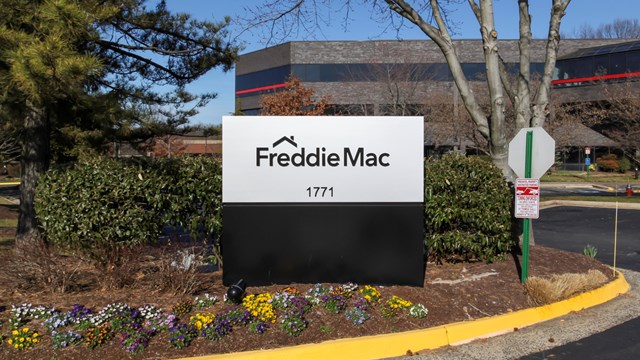Thinking about your co-op or condo as a financial entity doesn't produce the same warm feeling as thinking
about it as a home; but the fact remains that it is a financial entity in which you and your fellow shareholders or unit owners have invested. Audits, reviews and compilations are three types of financial reports prepared by an accountant. Each provides a different level of information about a property's financial condition, and all three can play an important role in conscientious financial oversight. Keeping up with how your investment is doing money-wise lets you know where you stand today so that you can plan appropriately for the future.
The Financial Audit
Of the three financial reports, audits are the most common. Typically produced at year-end, audits provide the highest level of financial statement and they present an objective, reasonable basis for expressing an opinion about a property's financial condition. Most co-ops and condos are required, by either the attorney general or the property's offering plan, to produce an annual financial audit and to share it with the shareholders or unit owners.
A thorough audit contains a line-by-line categorization of income and expenses, and independent confirmation of the property's financial activities during the period in question. Also included are required disclosures (the narrative footnotes at the end of the audit that explain significant line entries); disclosures of concentrated risk or economic dependencies (such as the presence of a sponsor); disclosures of commitments and financial contingencies unique to the property and disclosures of various accounting policies. Audits are almost always prepared on an accrual basis, showing all items that are either owed to, or owed by, the corporation in addition to cash activity.
Because audits are the most complete of the three financial reports, they require the most work to prepare and are therefore highest in cost. From the perspective of the CPA, audits call for detailed internal planning prior to commencement. Specifically, the CPA must determine what procedures are going to be performed, who is going to perform them and when they're going to be done.
The procedures to be performed are determined by the professional requirements of the accounting profession, and also by the level of complexity involved in the property's finances. Deciding what level of accounting professional will be assigned to work on the audit likewise depends on how complex the property's financial activities are, and also on the level of reliance that can be put on the property's internal financial controls. For example, when the management company maintains better internal controls, a lesser degree of fact checking may be required on the part of the accounting firm. But where there are errors or inconsistencies in the transactions or information presented, a higher level of investigation is called for and a more senior accountant will usually be required.
Certified Financial Statement
A certified financial statement is the document produced as the result of an audit and it's typically distributed shortly after year end to provide updated financial results to legitimately interested parties. However, the certified financial statement may also be called for when the property is seeking mortg ffb age refinancing, when there's a sponsor work-out or whenever there's a substantial change in the property's financial condition and an up-to-date financial portrait is either required or desired. While these interim audits must contain all the same information as the year-end audit, they are not meant to replace them.
In preparing any audit, the CPA should not only use financial information provided by the managing agent, but should also consult the property's minutes to gain an understanding of the property's finance-related decisions and transactions. For this reason, boards should make it a matter of course to provide copies of their minutes to their CPAs. The CPA should obtain and review samplings of each property's significant invoices and contracts, and should independently analyze the characteristics of the property's professional management in order to determine the likelihood of potential errors or irregularities in information provided. By doing so, the CPA will be able not only to present a total representation of the property's financial condition, but will also be able to reveal material misstatements due to fraud.
Despite the importance of the audit, some properties opt not to conduct one based on the belief that this will save the property money. This is an example of wrong thinking, because banks generally refuse to provide underlying mortgage financing and refinancing as well as end-loan financing to prospective purchasers when a property does not have a recent audit. Also, prospective purchasers tend to shy away from properties that cannot produce a clear statement of the property's financial condition as reflected in an audit. In addition, most insurance companies will not provide necessary insurance, including but not limited to Directors and Officers liability coverage, without a professionally prepared audit. What's more, the people who have invested in the property have a right to ongoing reporting of the financial status of their investment.
The Financial Review
Clearly, the audit is the most important and revealing financial report a property should produce. But many properties choose to go one step further and request periodic financial reviews as well. Unlike audits, reviews are optional. They are generally requested mid-year by properties that do not want to operate for an entire year without independent verification of their financial position, and they may be used to reveal and document budget versus actual financial activity to date, as well as significant matters affecting the property's financial statements.
Reviews do not provide a basis for expressing an opinion on a property's financial statements, and do not test accounting records or involve as high a level of inquiry response as an audit. Nevertheless, financially vigilant properties, and properties that are not afraid to pay for expertly prepared up-to-date financial information, request them for their own ongoing internal information and planning. And where there are significant changes in a property's financial condition, but an audit is not necessary, reviews are desirable to provide the most current financial information. Because reviews are less exhaustive than audits, their cost to produce is also somewhat less.
The Financial Compilation
In descending order, compilations are the least comprehensive financial reports prepared by an accountant, and their cost is correspondingly lowest. Often requested on a quarterly basis and most frequently used during the third quarter of a property's fiscal year to provide a picture of exactly where the property stands financially, compilations should be reported on an accrual basis and can be as simple as an independently verified budget versus actual comparison. The value of a compilation is that it provides a planning and budgeting guideline for the future.
Working With an Accountant
It's important to note that the overwhelming majority of properties engage their accountant on a retainer basis. The amount of the retainer is generally de ffb termined by the scope of work that is going to be required of the accountant during the course of the year, and is mutually agreed upon by both the property and the accountant based on this information. Hence, audits, reviews and compilations may be included in the retainer fee if the property and accountant have agreed that they will be part of the work to be performed. Where any or all of these reports are not included in a retainer agreement but are requested by the property, then the property and the accountant will come to terms regarding an additional fee for their provision.
Under any circumstances, properties have the right to expect full service when they engage an accounting firm or accounting professional. Accountants must provide evidence that they are independent of the property and have no vested interest in the way in which financial reports are prepared. In turn, it is incumbent upon properties to keep their accountant informed of what's going on within the property. This ongoing communication enables the accountant to have a clear picture of the property's direction, and directly impacts the accountant's ability to provide an accurate financial portrait.
It is also incumbent upon the property to engage the most professional CPA or accounting firm. Properties will want to make sure that their accountant is intimately familiar with the structure and workings of the co-op or condo community, and that the accountant and accounting firm are members of the American Institute of Certified Public Accountants (MCPA), in order to ensure the appropriate and desirable level of knowledge, expertise and professional peer review.
The best run co-ops and condos understand the importance of ongoing financial oversight and expert, independent verification of their financial position. This conscientiousness is reflected in the level and frequency of financial reporting through audits, reviews and compilations, and, of course, in the actions the property takes based on the information provided.
Mr. Montanye is a partner of Marin & Montanye LLP Certified Public Accountants in Roslyn, New York.







Leave a Comment